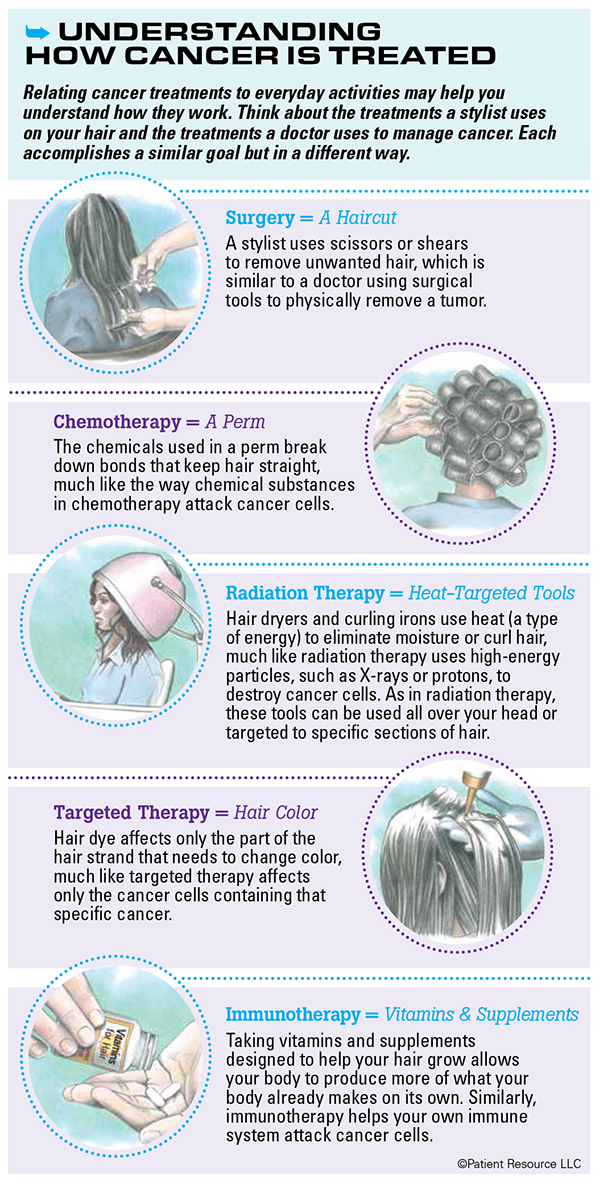The Buzz on Arogyajivan Medical Tourism For Oncology
The Buzz on Arogyajivan Medical Tourism For Oncology
Blog Article
The 7-Minute Rule for Arogyajivan Medical Tourism For Oncology
Table of ContentsArogyajivan Medical Tourism For Oncology for DummiesThe 7-Minute Rule for Arogyajivan Medical Tourism For OncologyThe Only Guide for Arogyajivan Medical Tourism For Oncology3 Easy Facts About Arogyajivan Medical Tourism For Oncology ExplainedNot known Incorrect Statements About Arogyajivan Medical Tourism For Oncology How Arogyajivan Medical Tourism For Oncology can Save You Time, Stress, and Money.Not known Details About Arogyajivan Medical Tourism For Oncology
If you have cancer, your health and wellness treatment company will suggest one or even more means to deal with the disease. Here is an overview of the different therapies for cancer and exactly how they function.Cancer cells grow and split faster than normal cells in the body. Due to the fact that radiation is most unsafe to rapidly expanding cells, radiation treatment problems cancer cells more than regular cells. It utilizes substances made by the body or in a laboratory to assist the immune system work harder or in an extra targeted means to deal with cancer cells.
Some have toxic substances or radioactive substances affixed to them. Immunotherapy is provided by IV. Hormonal agent therapy is used to treat cancers cells that are fueled by hormonal agents, such as bust, prostate, and ovarian cancers cells. It makes use of surgical treatment, or medicines to stop or block the body's all-natural hormonal agents. This helps slow the growth of cancer cells.
Slim fibers at the end of the tube route the light at the cancer cells. Lasers are most usually utilized with various other kinds of cancer cells therapy such as radiation and chemotherapy.
Our Arogyajivan Medical Tourism For Oncology Diaries

An oncologist is a cancer medical professional. These healthcare suppliers focus on oncology the branch of medication that concentrates on diagnosing, hosting and dealing with cancer. AdvertisementCleveland Facility is a non-profit scholastic clinical. Marketing on our site aids support our goal. We do not endorse non-Cleveland Clinic items or services. A browse through to an oncologist provides you an opportunity to chat with a professional that comprehends what you're going with.
They're ready to help, and they'll walk with you every action of the method. An oncologist obtains involved if you have signs that might be cancer.
The Of Arogyajivan Medical Tourism For Oncology
Lots of More Info cancers cells are more treatable in the early stages. Cancer cells is a complicated condition.
A lot of medical oncologists also focus on hematology (the diagnosis and therapy of blood problems and blood cancers cells). These doctor make use of radiation treatment to deal with cancer cells. Radiation can diminish tumors prior to surgical procedure or eliminate remaining cancer cells after surgery. You might have radiation as a stand-alone treatment or in combination with other treatments.
Some Known Incorrect Statements About Arogyajivan Medical Tourism For Oncology
Do I have cancer? How much time have I had it? What will my life resemble now? If these are the questions racing with your mind, view you're not alone. Your oncologist is here to aid you navigate these feelings. Throughout your very first visit, your oncologist will certainly: Ask you to define your signs in detailDo a physical examReview your medical documents, including family members background and any type of previous or present health and wellness conditionsRun any essential examinations (like imaging tests or lab work) to learn even more concerning your symptomsDetermine whether you require a biopsyOnce your oncologist gathers the information they need, they'll: Review the outcomes of your testsSend their findings to the doctor that referred youTell you whether you have cancer cells and if so, what kindTalk to you about different therapy optionsListen to your problems and anxietiesGive you resources that can offer support and additional informationYour first oncology visit may occupy to three hours.
Oncology is the study of cancer cells. Specialists trained in oncology provide treatment for people that are at risk for cancer cells, being dealt with for cancer, and living with cancer cells after therapy.

Arogyajivan Medical Tourism For Oncology - Questions
Some kinds of cancer cells occur most commonly in these younger age teams. When these types of cancer periodically happen in adults, those adult patients might choose to work with a pediatric oncologist.

In some instances, a surgical oncologist may be the initial expert an individual sees. Often when cancer cells is suspected however not diagnosed, an oncologist may likewise be included. Some people with blood problems that might or may not be cancerous could be referred to a hematologist oncologist. Numerous individuals will certainly continue seeing their oncologist for follow-up consultations to look for indicators of cancer coming back and to take care of any side effects from therapy.
The Ultimate Guide To Arogyajivan Medical Tourism For Oncology
If you have a cancer cells medical diagnosis and are weighing your treatment choices, consider taking part in a medical trial. Although they might seem daunting at initially, clinical trials can be incredibly useful no issue what type or phase of cancer cells you have. Benjamin Levy, M.D., professional supervisor of the Johns Hopkins Kimmel Cancer Cells Center at Sibley Memorial Hospital and a lung cancer researcher, explains several of the factors to join a clinical test.
Report this page